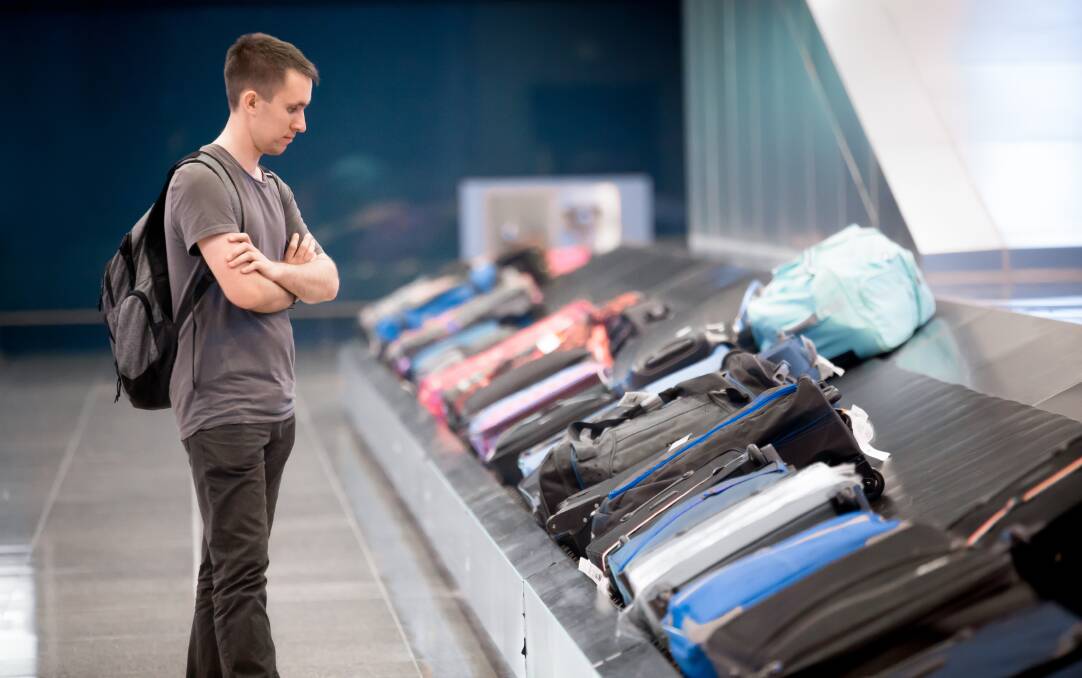
I recently flew to Canberra via Sydney. Planes were on time and it was an unremarkable journey.
I walked to the carousel at Canberra Airport and waited. Bags started to come out and other passengers collected their belongings. I know someone has to have the last bag that comes out so I was patiently waiting.
Then I saw the same bags circulating on the carousel and started to have a sinking feeling. When the last bag was collected and the carousel was now empty, I knew it was time to visit the lost luggage window.
You might also like:
I am not alone in this experience but since airlines and airports have tried to move their numbers back up to pre-pandemic levels, the examples of delayed or lost luggage are skyrocketing. Internationally, the rate is currently at 8.7 suitcases per 1,000 passengers not arriving together. That is an increase of 24 per cent over last year.
The US has seen a 67 per cent rise over last year. If you compare numbers to 2019, the figures show a 30 per cent increase on the last year where air travel levels were "normal".
Qantas is reportedly losing an incredible 1 in 10 bags in Sydney. That all seems like bad news especially considering the incredible technology that currently exists at airports to track and deliver luggage effectively.
Each time we read another story about lost luggage being located via this method, searches and sales will increase again.
So if that technology is not delivering for travellers, what alternative do you have?
As it turns out, quite a good solution and there are already reports of people utilising this solution.
Bluetooth trackers have been on the market since 2013. They are low-powered devices that allow you to install an app on your phone and see, with a relatively high degree of accuracy, where the tracker is. The app can also trigger a noise to be emitted from the tracking device.
The trackers themselves are small enough to fit in a wallet or on a set of keys or, in the case of my daughter, in a teddy bear! As the name suggests, they use Bluetooth to communicate between your phone and the tracker. And I can hear your next question.
Well, to answer that question, the range of Bluetooth is about 10 metres. Initially you might think that this then provides a wonderful solution if you have lost your keys in your house assuming you can walk around your house and be within 10 metres of your keys.
It is somewhat more problematic if you left your keys down the street and you are now at your front door.
The second part of the solution is that any other person using the same brand of tracker can act as a locator for your tracker.
As long as their phone is within Bluetooth range of your keys, you can find them on your phone without any security or privacy issues with the phone of another random user. And that is exactly the solution being utilised by travellers with their luggage.
- Check out how you can save with the latest deals on business, home office and technology with discount codes from Australian Coupons.
An analysis of Google search results shows that searches for Bluetooth tracking devices have increased by 123 per cent in the last month.
Specifically, people are searching for Apple's AirTags or the largest tracking company (tile) or Galaxy SmartTag or Chipolo or simply "luggage trackers" and each time we read another story about lost luggage being located via this method, searches and sales will increase again.
As long as there are some luggage handlers within Bluetooth range of your device and they are running the same app that you use, you will be in luck. It might be easier if our luggage just arrived with the people!
- Mathew Dickerson is a technologist, futurist and host of the Tech Talk podcast.

